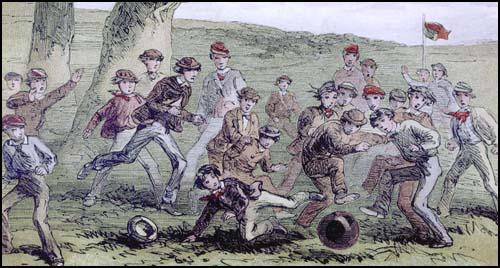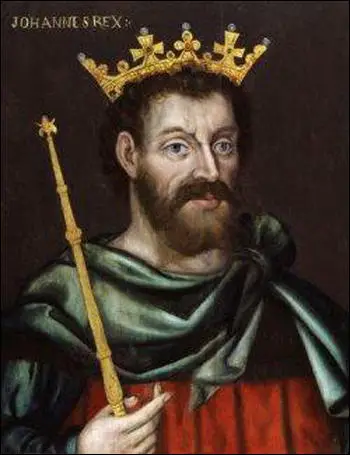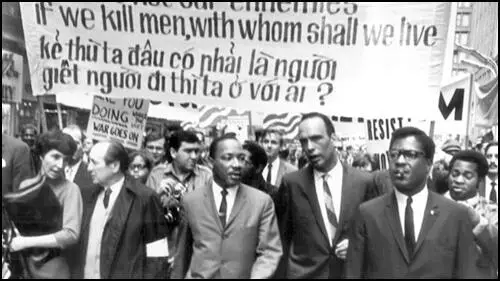May's Written Primary Source for the History Classroom
Activities for the History Classroom

(3) Joseph Strutt, The Sports and Pastimes of the People of England (1801)
Football is so called because the ball is driven about with the feet instead of the hands. It was formerly much in vogue among the common people of England, though of late years it seems to have fallen into disrepute, and is but little practised. I cannot pretend to determine at what period the game of football originated; it does not, however, to the best of my recollection, appear among the popular exercises before the reign of Edward III, and then, in 1349, it was prohibited by a public edict; not, perhaps, from any particular objection to the sport in itself, but because it co-operated, with other favourite amusements, to impede the progress of archery.
When a match at football is made, two parties, each containing an equal number of competitors, take the field, and stand between two goals, placed at the distance of eighty or an hundred yards the one from the other. The goal is usually made with two sticks driven into the ground, about two or three feet apart. The ball, which is commonly made of a blown bladder, and cased with leather, is delivered in the midst of the ground, and the object of each party is to drive it through the goal of their antagonists, which being achieved the game is won. The abilities of the performers are best displayed in attacking and defending the goals; and hence the pastime was more frequently called a goal at football than a game at football. When the exercise becomes exceeding violent, the players kick each other's shins without the least ceremony, and some of them are overthrown at the hazard of their limbs.
Question: Read the History of Football. How has the game changed since the 14th century?

(4) Matthew Paris, Greater Chronicle (c. 1260)
John was a tyrant rather than a king, a destroyer rather than a governor, an oppressor of his own people, and a friend to strangers, a lion to his own subjects, a lamb to foreigners and those who fought against him; for, owing to his slothfulness, he had lost Normandy and, moreover, was eager to lose the kingdom of England or destroy it; he was an insatiable extorter of money, and an invader and destroyer of the possessions of his own natural subjects... he had violated the daughters and sisters of his nobles; and was wavering and distrustful in his observance of the Christian religion?
(After signing the Magna Carta) King John's mental state underwent a great change... He started to gnash his teeth and roll his eyes in fury. Then he would pick up sticks and straws and gnaw them like a lunatic... His uncontrolled gestures gave indications... of the madness that was upon him.
Question: Read about Matthew Paris. How might his background have influenced what he wrote about King John?

(5) Martin Luther King, speech (4th April, 1967)
Since I am a preacher by trade, I suppose it is not surprising that I have several reasons for bringing Vietnam into the field of my moral vision. There is at the outset a very obvious and almost facile connection between the war in Vietnam and the struggle I, and others, have been waging in America. A few years ago there was a shining moment in that struggle. It seemed as if there was a real promise of hope for the poor - both black and white - through the Poverty Program. There were experiments, hopes, new beginnings. Then came the build-up in Vietnam and I watched the program broken and eviscerated as if it were some idle political plaything of a society gone mad on war, and I knew that America would never invest the necessary funds or energies in rehabilitation of its poor so long as adventures like Vietnam continued to draw men and skills and money like some demoniacal destructive suction tube. So I was increasingly compelled to see the war as an enemy of the poor and to attack it as such.
Perhaps the more tragic recognition of reality took place when it became clear to me that the war was doing far more than devastating the hopes of the poor at home. It was sending their sons and their brothers and their husbands to fight and to die in extraordinarily high proportions relative to the rest of the population. We were taking the black young men who had been crippled by our society and sending them 8,000 miles away to guarantee liberties in Southeast Asia which they had not found in Southwest Georgia and East Harlem. So we have been repeatedly faced with the cruel irony of watching Negro and white boys on TV screens as they kill and die together for a nation that has been unable to seat them together in the same schools.
My third reason moves to an even deeper level of awareness, for it grows out of my experience in the ghettos of the North over the last three years - especially the last three summers. As I have walked among the desperate, rejected and angry young men I have told them that Molotov cocktails and rifles would not solve their problems. I have tried to offer them my deepest compassion while maintaining my convictions that social change comes most meaningfully through non-violent action. But they asked - and rightly so - what about Vietnam? They asked if our own nation wasn't using massive doses of violence to solve its problems, to bring about the changes it wanted. Their questions hit home, and I knew that I could never again raise my voice against the violence of the oppressed in the ghettos without having first spoken clearly to the greatest purveyor of violence in the world today - my own government.
They watch as we poison their water, as we kill a million acres of their crops. They must weep as the bulldozers roar through their areas preparing to destroy the precious trees. They wander into the hospitals, with at least 20 casualties from American firepower for one Vietcong-inflicted injury. They wander into the towns and see thousands of the children, homeless, without clothes, running in packs on the streets like animals. They see the children degraded by our soldiers as they beg for food. They see the children selling their sisters to our soldiers, soliciting for their mothers.
What of the National Liberation Front - that strangely anonymous group we call VC or Communists? What must they think of us in America when they realize that we permitted the repression and cruelty of Diem which helped to bring them into being as a resistance group in the South? What do they think of our condoning the violence which led to their own taking up of arms? How can they believe in our integrity when now we speak of "aggression from the North" as if there were nothing more essential to the war? How can they trust us when now we charge them with violence after the murderous reign of Diem, and charge them with violence while we pour every new weapon of death into their land? Surely we must understand their feelings even if we do not condone their actions. Surely we must see that the men we supported pressed them to their violence. Surely we must see that our own computerized plans of destruction simply dwarf their greatest acts.
How do they judge us when our officials know that their membership is less than 25 per cent Communist and yet insist on giving them the blanket name? What must they be thinking when they know that we are aware of their control of major sections of Vietnam and yet we appear ready to allow national elections in which this highly organized political parallel government will have no part? They ask how we can speak of free elections when the Saigon press is censored and controlled by the military junta. And they are surely right to wonder what kind of new government we plan to help form without them - the only party in real touch with the peasants. They question our political goals and they deny the reality of a peace settlement from which they will be excluded. Their questions are frighteningly relevant. Is our nation planning to build on political myth again and then shore it up with the power of new violence?
Here is the true meaning of value and compassion and nonviolence when it helps us to see the enemy's point of view, to hear his questions, to know his assessment of ourselves. For from his view we may indeed see the basic weaknesses of our own condition, and if we are mature, we may learn and grow and profit from the wisdom of the brothers who are called the opposition.
Question: Why did Martin Luther King campaign against the Vietnam War?

